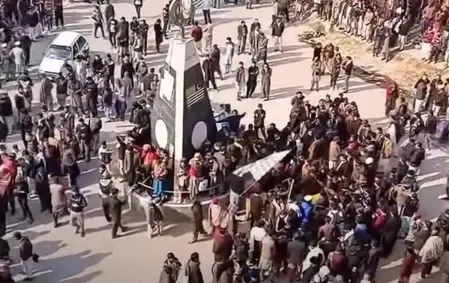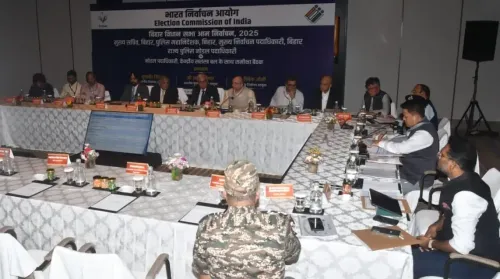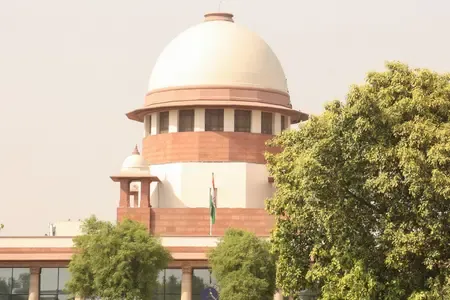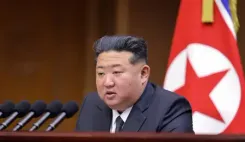Is PM Modi's Maldives Visit a Strategic Reset?
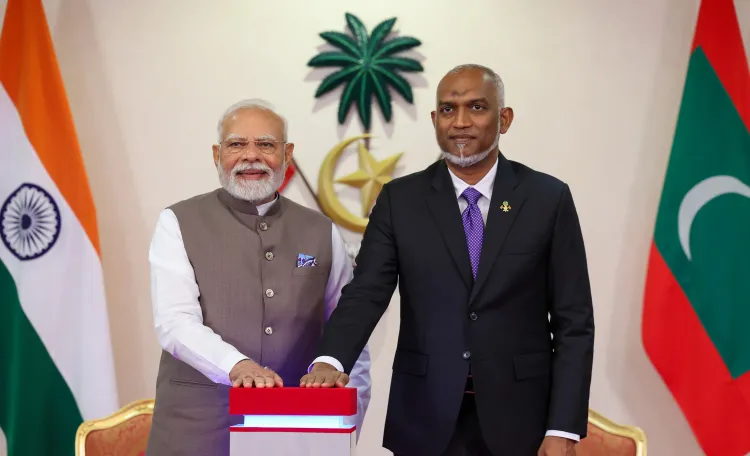
Synopsis
Key Takeaways
- Strategic Maneuvering: India reasserts its influence in the Indian Ocean.
- Economic Support: A significant Line of Credit announced for Maldives.
- Countering Influence: India aims to mitigate China's growing presence.
- Security Cooperation: Enhanced training and equipment support for Maldivian forces.
- Geopolitical Tools: India's aid is framed within a broader strategic context.
New Delhi, Aug 7 (NationPress) The recent evolution in the relationship between India and Maldives marks a significant strategic maneuver in India's foreign policy. This gesture not only reflects goodwill but also signifies India’s reassertion of its dominance in the Indian Ocean, where the influence of China is increasingly observable, as highlighted in a recent report.
The Maldives, through the revitalization of its bilateral ties with India, benefits from economic support, strengthened security collaboration, and enhanced people-to-people connections, effectively moving away from China's approach of “debt-trap” diplomacy and transactional tactics, as reported by India Narrative.
Beyond its allure as a tourist destination, Maldives occupies a crucial strategic position within the Indian Ocean sea lanes, which are among the world’s most vital maritime routes for commerce and energy. It plays a pivotal role as a security outpost against China's military cooperation agreements.
Prime Minister Narendra Modi's visit to the Maldives in July represented an ideal blend of substantive action and symbolic renewal.
During his two-day State Visit, invited by President Mohamed Muizzu, PM Modi participated in the Independence Day celebrations of the Maldives as the ‘Guest of Honour’ at Republic Square in Male. He also engaged in bilateral discussions with the Maldivian President and met with political leaders from various parties.
During this visit, PM Modi declared that India would extend a Line of Credit amounting to Rs 4,850 crore and provide debt relief to the Maldives. These actions are not mere handouts; they are intentional geopolitical instruments. By offering credit in rupees, India helps shield the Maldives from foreign currency dependencies that China often exploits, thereby fostering economic interdependence on transparent and mutually respectful grounds. This decision stands in stark contrast to China’s lending practices, which often lead to unsustainable obligations and compromised sovereignty, as cited in the report.
India’s initiative to assist Maldivian security forces through training, equipment, and capacity building is significant as it illustrates New Delhi's determination to maintain maritime strategic influence and sends a clear message to China that its “string of pearls” strategy will face resistance. This move reflects an advanced understanding of contemporary statecraft.
Similar to other smaller nations, the Maldives adeptly navigates between larger powers for its own advantages. Nevertheless, India’s layered, patient, and generous engagement has successfully countered Chinese influence, as noted in the report. This approach encapsulates the essence of India’s 'Neighbourhood First' and 'SAGAR' policies.
The revitalization of India-Maldives relations underscores that influence arises from a nuanced, inclusive, and respectful partnership rather than mere hard power or financial assistance. India aims to sustain this momentum through economic investments, security collaborations, and cultural diplomacy, ensuring a stable and cooperative Indian Ocean order despite China's aggressive maneuvers.
As the IN report emphasizes, the reset in bilateral ties is more than just effective diplomacy; it is a vital strategy for India to safeguard its core security interests while enhancing its stature as a responsible regional power. India's approach, rooted in respect, generosity, and pragmatic realism, is essential for future cooperation.


